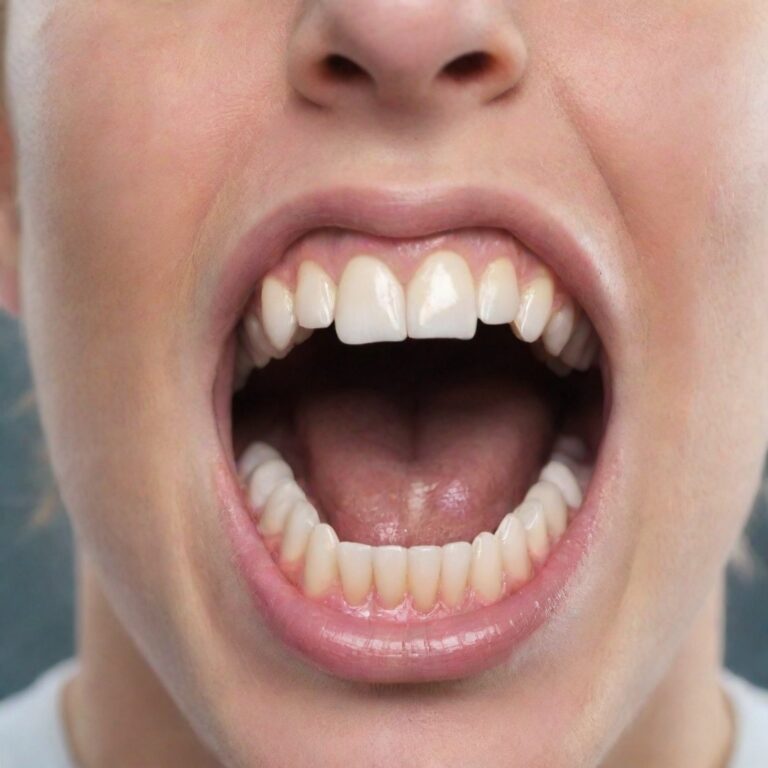Dental Clinics
The Role of Dental Clinics in Promoting Oral Health Awareness
Dental clinics play a crucial role in promoting oral health awareness in communities. These centers are not only places for treatment but also serve as educational hubs where patients can learn about maintaining good oral hygiene. Understanding the services offered by dental clinics can help you prioritize your oral health.
Education on Oral Hygiene
One of the primary functions of dental clinics is education. Here, patients receive information about proper brushing and flossing techniques. Many clinics provide visual aids and demonstrations, making it easier for you to understand oral hygiene practices. Clinics often distribute brochures and pamphlets that emphasize the importance of regular dental check-ups and preventive care.
Preventive Services
Preventive care is a core service that dental clinics offer to ensure long-term oral health. This includes:
- Regular check-ups
- Cleanings
- Fluoride treatments
- Sealants
These services help in early detection of potential issues, offering you the chance to address them before they become serious problems. Regular visits help reduce the risk of cavities, gum disease, and other oral health issues.
Community Outreach Programs
Many dental clinics are involved in community outreach programs aimed at raising oral health awareness. These programs may include:
- Free dental camps
- School-based education initiatives
- Workshops on healthy eating and its impact on oral health
By participating in these initiatives, clinics help educate the public, particularly children and families, on the importance of oral health. This kind of engagement builds a stronger awareness within your community.
Access to Resources
Dental clinics also provide valuable resources and referrals. They often have pamphlets and informative materials that outline different aspects of oral health. These may include:
- Information on managing dental anxiety
- Guidance on nutrition for dental health
- Tips on selecting appropriate dental products
Having access to these resources allows you to make informed decisions regarding your oral care routine.
Tailored Care and Counseling
Another important role of dental clinics is offering tailored care and counseling. Each person’s dental needs vary, and dental professionals can give personalized advice based on your specific circumstances. For instance:
- If you suffer from gum disease, your dentist might suggest a particular cleaning regimen.
- Those with braces may receive tips on cleaning while wearing appliances.
- Patients experiencing tooth sensitivity may receive recommendations on suitable toothpaste and treatments.
This personalized attention helps you feel more confident in your oral health journey.
Fostering a Positive Attitude Towards Dental Visits
An often-overlooked aspect of dental clinics is their part in reshaping perceptions about dental visits. Many people experience anxiety when thinking about going to the dentist. Clinics work to create a friendly and comfortable environment. Friendly staff, engaging activities for children, and clear communication ease the fear associated with dental treatments. This helps in developing a more positive attitude towards regular dental appointments.
Supporting Mental Health
Dental health is not solely about the teeth; it’s also tied to mental well-being. Poor oral health can lead to issues like anxiety and depression. By promoting good oral health practices, dental clinics indirectly help improve mental health through:
- A boost in self-esteem from maintaining an attractive smile
- Reduction of pain and discomfort related to dental issues
- Encouragement to maintain overall health, which includes seeing a dentist
Recognizing this connection reinforces the importance of frequent dental visits, and clinics are fundamental in this educational effort.
Ultimately, dental clinics have a multifaceted role in promoting oral health awareness. They serve as a vital resource for education, preventive care, and community engagement. By utilizing these services, you not only improve your dental health but also contribute to a broader culture of wellness within your community.
How to Choose the Right Dental Clinic for Your Needs
Finding the right dental clinic can feel overwhelming, especially with so many options available. Your dental health is important, and choosing a clinic that meets your needs is crucial for maintaining a healthy smile. Here are some tips to help you make an informed decision.
Consider the Location
Think about where the dental clinic is located. A clinic close to your home or workplace can save you time and make it easier to stick with your dental appointments. Ensure that the dental office is in a safe area and has convenient parking or public transport options.
Check the Services Offered
Dentists provide a range of services, from routine cleanings to more specialized treatments. Consider what services you might need:
- General dentistry (check-ups, fillings)
- Cosmetic dentistry (whitening, veneers)
- Orthodontics (braces, Invisalign)
- Pediatric dentistry (children’s dental care)
- Oral surgery (extractions, implants)
Make sure the clinic you choose offers the services relevant to your needs. If you require specific treatments, verify that the clinic has the expertise and technology to perform them.
Evaluate the Qualifications of the Dental Team
The experience and qualifications of the dental staff can impact the quality of care you receive. Research the dentist’s background, including their education, training, and any specialties. Furthermore, look for board certifications and memberships in professional organizations, as these can indicate a commitment to ongoing education and quality standards.
Read Reviews and Testimonials
Before settling on a dental clinic, take the time to read reviews from other patients. Websites like Google, Yelp, and Healthgrades provide insights from real patients about their experiences. Look for comments on:
- Quality of care
- Customer service
- Waiting times
- Overall satisfaction
While one or two negative reviews might not be a deal-breaker, consistent feedback about specific concerns should raise a red flag.
Assess the Office Environment
During your first visit, pay attention to the office environment. A well-organized, clean, and welcoming space can make a big difference in your comfort level. Friendly staff and modern equipment contribute to a positive experience. Don’t hesitate to ask questions about hygiene practices and safety measures to ease any concerns you may have.
Inquire About Insurance and Payment Options
Dental care can be expensive, so it’s important to understand the clinic’s payment and insurance policies. Ask whether they accept your dental insurance and what payment plans they offer if you need a large treatment. Some clinics provide financing options to help manage costs, which can be beneficial for patients with budget constraints.
Schedule a Consultation
Once you’ve narrowed down your options, consider scheduling a consultation. This visit allows you to meet the dentist and the team, ask questions, and get a feel for the clinic’s atmosphere. Pay attention to how the staff engages with patients, as good communication can enhance your overall experience. You should also ask about their approach to treatment and whether they prioritize patient comfort and education.
Evaluate Emergency Care Options
Dental emergencies can happen at any time, so it’s wise to find out how the clinic handles such situations. Ask about their after-hours policy. Do they have an on-call dentist? Is there another clinic in their network to assist you when they are unavailable? Knowing this information ahead of time can give you peace of mind.
Choosing the right dental clinic is an essential step towards achieving optimum dental health. Take your time to evaluate your options, and don’t hesitate to ask questions. It’s about finding a place where you feel comfortable and cared for. Your smile deserves the best!
The Impact of Technology on Dental Clinic Services
Technology is transforming the way dental clinics operate and deliver services to their patients. With innovations advancing at a rapid pace, dental professionals can now provide high-quality care more efficiently and effectively. Here’s how technology impacts dental clinic services and enhances the patient experience.
Improved Diagnostic Tools
Modern dental clinics utilize advanced diagnostic tools that enable precise and immediate detection of oral health issues. Digital X-rays are a prime example, allowing dentists to identify problems without the need for bulky equipment. This results in:
- Reduced radiation exposure for patients.
- Faster results that facilitate timely treatment.
- Enhanced visualization of dental structures, leading to better diagnosis.
Enhanced Treatment Options
Technology not only aids in diagnosis but also expands treatment options available at dental clinics. Procedures that once took multiple visits can often be completed in one appointment. Innovations include:
- CEREC technology: This allows for same-day crowns, reducing the need for temporary crowns and additional visits.
- Laser dentistry: Minimally invasive laser treatments can reduce pain and recovery time for procedures like gum contouring.
- 3D printing: This can create precise dental models, aligners, and prosthetics quickly and accurately.
Patient Management Systems
Dental clinics are increasingly adopting comprehensive patient management software. Such systems streamline many operational aspects, leading to better patient care. Key benefits include:
- Easy scheduling of appointments, reducing wait times.
- Automated reminders for upcoming visits, which helps patients stay on track with their dental health.
- Secure storage of patient records, improving accessibility for both staff and patients.
Tele Dentistry
Tele dentistry, or remote dental consultations, is gaining ground, especially in the wake of the pandemic. This service allows patients to consult with their dentists from the comfort of home. Advantages of tele dentistry include:
- Increased access to care for those in remote or underserved areas.
- Convenience for busy individuals who may struggle to find time for in-person visits.
- The ability to address minor concerns quickly without requiring a full office visit.
Patient Education and Engagement
Technology also plays a crucial role in educating patients about their oral health. Clinics now use various tools to engage patients better, including:
- Educational videos: Informative content can explain procedures, enhancing patient understanding and comfort.
- Interactive apps: Many dental clinics offer mobile applications that provide reminders, educational resources, and progress tracking.
- Social media: Clinics use social platforms to share tips and updates, fostering a sense of community and support.
Increased Treatment Precision
Precision is vital in dental work, and technology significantly enhances this aspect. Tools such as intraoral cameras and digital impressions provide a comprehensive view of a patient’s oral cavity, leading to:
- More accurate treatment planning and execution.
- Minimized discomfort during procedures, as impressions become less invasive.
- Better overall patient satisfaction with the quality of care received.
Future Innovations
The future of dental clinics is bright as technology continues to evolve. Emerging innovations promise even more benefits for clinics and patients alike. Among these possibilities are:
- Artificial Intelligence (AI) in diagnostics, helping identify conditions faster and more accurately.
- Virtual reality for patient relaxation, ensuring a calming experience during treatments.
- Blockchain technology for secure and transparent patient data management.
As technology permeates every aspect of dentistry, dental clinics are better equipped to meet patient needs with innovative tools and techniques. The ongoing integration of these advancements sets a new standard for patient care, making dental visits more efficient and enjoyable. Patients can feel more confident in their care as dental clinics leverage technology to deliver quality services.
Common Myths About Dental Clinics Debunked
When it comes to dental clinics, there are many misconceptions that can keep people from seeking the care they need. It’s important to address these myths and provide clear information to help you make informed decisions about your dental health. Let’s explore some common myths about dental clinics and uncover the truth behind them.
Myth 1: Dental Clinics Are Only for Emergencies
Many people think that dental clinics are only there for emergency situations like a toothache or a broken tooth. However, this is far from the truth. Regular visits to a dental clinic are essential for maintaining overall oral health. These visits allow for preventive care, including cleanings, check-ups, and early detection of any potential issues.
Myth 2: Dental Care Is Only About Teeth
Another common belief is that dental clinics are solely concerned with teeth. In reality, dental health encompasses much more. Your gums, jaw, and oral tissues are all vital components of your dental well-being. At a dental clinic, professionals assess and treat the entire mouth, ensuring comprehensive care.
Myth 3: Dental Work Is Always Painful
Many people avoid dental clinics due to the fear of pain. This myth stems from outdated practices and personal experiences. Today’s dental clinics prioritize patient comfort with advanced techniques and anesthesia. Many procedures are quick and relatively painless, thanks to technological advancements in modern dentistry.
Myth 4: You Should Only Visit a Dentist When You Have a Problem
Waiting until something is wrong before visiting a dental clinic can lead to more serious issues down the line. Regular check-ups are crucial for catching problems early, when they are easier and less expensive to treat. Even if you feel fine, an annual visit to the dentist can help prevent potential issues from developing.
Myth 5: White Teeth Are Always Healthy Teeth
Many believe that having white teeth means they are healthy teeth. While a bright smile may look appealing, it does not always reflect dental health. Factors like gum disease can exist even in people with white teeth. That’s why it’s essential to have regular dental check-ups to assess the health of your gums and the rest of your mouth.
Myth 6: Dental Clinics Are Too Expensive
The cost of dental care is often a concern, leading people to think they cannot afford services. While dental work can be pricey, many clinics offer payment plans and accept insurance. It’s also important to consider the long-term savings from preventive care versus reactive care. Investing in regular dental visits can save you from costly treatments in the future.
Myth 7: You Can Skip Cleanings If You Brush Regularly
Brushing your teeth is essential, but it does not replace the need for professional cleanings. A dental clinic can remove plaque and tartar that brushing alone cannot. Regular cleanings help prevent cavities and gum disease, ensuring that you maintain the best dental health possible.
Myth 8: Kids Don’t Need to Visit a Dental Clinic Until They’re Older
Some parents think children can skip dental visits until they are much older. However, children should have their first dental visit by their first birthday or when their first tooth appears. Early visits help establish a foundation for good oral habits and allow any developmental issues to be addressed promptly.
Myth 9: All Dental Clinics Are the Same
Not all dental clinics offer the same level of care or specialization. It’s important to find a clinic that meets your specific needs, whether that’s general practice, orthodontics, or cosmetic dentistry. Researching clinics in your area and reading reviews can help you choose the best one for you.
Myth 10: Dental Anxiety Is Rare
Dental anxiety is a common concern among patients. Many individuals experience fear before a dental visit, but it’s important to remember that you’re not alone. Many clinics offer sedation options to help ease anxiety during procedures. Communicating your fears with your dental provider can lead to a more comfortable experience.
Understanding the truth behind these myths is essential for taking control of your dental health. Regular visits to a dental clinic can ensure a healthy smile and prevent future issues. Don’t let misconceptions prevent you from maintaining optimal dental care.
Understanding the Different Specialties Within Dental Clinics
Dental clinics are vital healthcare facilities offering a range of services to maintain and improve oral health. Within these clinics, several specialties cater to different aspects of dental care. Understanding these specialties can help you make informed decisions about your dental health and choose the right professional for your needs.
Pediatric Dentistry
Pediatric dentists specialize in treating children from infancy through the teen years. Their training focuses on the unique dental needs and challenges faced by younger patients. They strive to create a comfortable environment, making dental visits fun and non-threatening. Services provided include:
- Routine check-ups
- Fluoride treatments
- Cavity prevention and management
- Educational resources for parents
Orthodontics
Orthodontists focus on diagnosing and correcting misaligned teeth and jaws. They use braces, retainers, and other devices to straighten teeth and improve overall function. Orthodontic treatment not only enhances appearance but also aids in proper chewing and speaking. Common procedures include:
- Braces installation and adjustment
- Clear aligner therapy (like Invisalign)
- Jaw alignment assessments
Periodontics
Periodontists specialize in preventing, diagnosing, and treating gum diseases, such as gingivitis and periodontitis. They also perform surgeries related to the gums and jawbone. A healthy gum foundation is essential for strong teeth, which is why regular periodontal evaluations are crucial. Services typically include:
- Scaling and root planing
- Gum grafts
- Bone grafts and dental implants
Endodontics
Endodontists focus on treating issues related to the dental pulp and root of the tooth, especially when infections arise. Their expertise lies in root canal treatment, which can save a tooth that might otherwise need extraction. This specialty is crucial, as damage to the pulp can lead to severe pain and infection. Services include:
- Root canal therapy
- Retreatment of previously treated teeth
- Treatment of dental trauma
Oral and Maxillofacial Surgery
This specialty involves surgical procedures related to the mouth, jaw, and face. Oral and maxillofacial surgeons handle complex cases, such as tooth extractions, jaw realignment, and reconstructive surgeries. They play a significant role in treatment plans for patients requiring surgical intervention. Services provided include:
- Wisdom tooth removal
- Jaw surgery
- Facial trauma repair
Cosmetic Dentistry
Cosmetic dentists focus on enhancing the appearance of teeth, gums, and smiles. While the primary goal is aesthetics, many procedures also promote oral health. Providers in this field use advanced techniques and materials to achieve desired results. Some popular procedures include:
- Teeth whitening
- Veneers
- Bonding for chipped or broken teeth
General Dentistry
General dentists are often the first line of defense for your dental health. They provide comprehensive care and can handle a variety of procedures, from routine cleanings to more complex treatments. This specialty is essential for maintaining your overall dental health. Typical services offered include:
- Regular check-ups and cleanings
- Cavity fillings
- X-rays and preventative care
Each dental specialty plays a crucial role in maintaining oral health. If you need dental care, understanding these specialties allows you to seek the appropriate treatment. Most clinics offer a combination of services, so don’t hesitate to ask your general dentist for referrals to specialists when needed. Your oral health deserves the best, and knowing your options empowers you to take charge of your smile.
Remember, regular dental visits are essential, regardless of the services you may require. Keeping a proactive approach to your dental health can prevent many issues before they become more severe.
Conclusion
Choosing the right dental clinic is a vital step in maintaining your oral health. Understanding the role these clinics play in promoting awareness and educating patients is crucial. Dental clinics don’t just focus on treatments; they strive to help you understand the importance of preventive care, which ultimately enhances your overall well-being.
When selecting a dental clinic, consider the specific services tailored to your needs. Whether you require general care or specialized treatment, a well-equipped clinic with experienced professionals can significantly affect your dental experience. Technology has revolutionized dental services, allowing for more accurate diagnoses and effective treatments, ensuring you receive the highest standard of care.
It’s also essential to dispel common myths surrounding dental clinics. Many people may feel anxious about visiting, unsure about what to expect. Addressing these misconceptions can lead to more informed decisions and a more relaxed attitude toward dental care.
Moreover, recognizing the different specialties within dental clinics ensures you find the right expert for your particular dental concerns. Understanding services like orthodontics, periodontics, and cosmetic dentistry helps you make informed choices tailored to your situation.
By prioritizing your dental health and staying informed about available options, you set yourself on a path to a healthier, brighter smile. Engage with your chosen dental clinic; together, you can create a personalized care plan that keeps your oral health on track for years to come.



